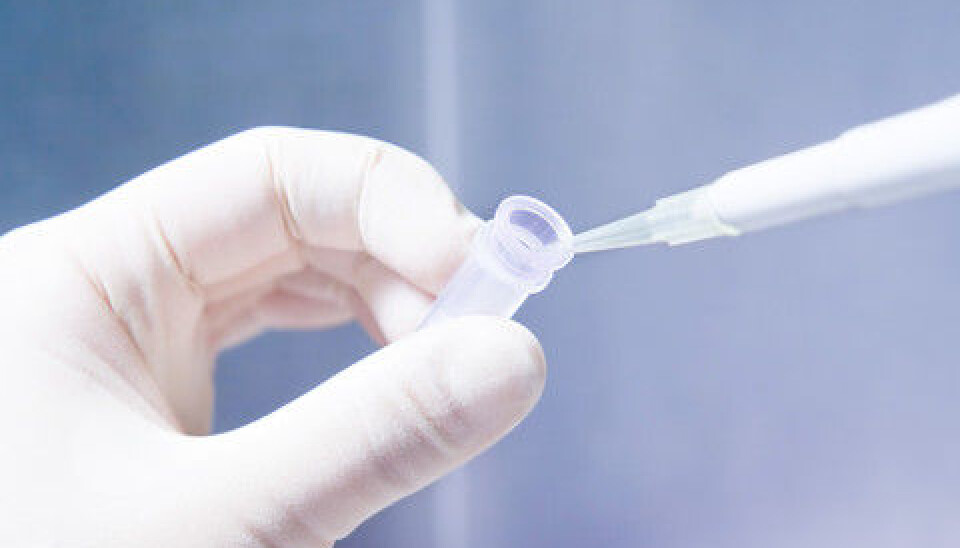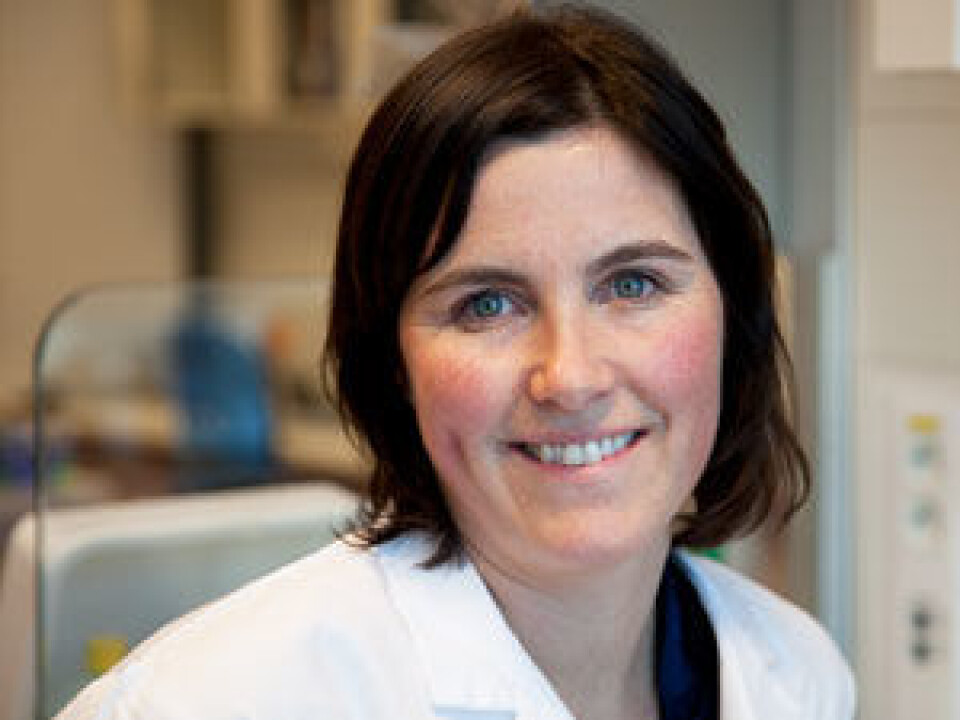An article from University of Oslo

The telltale gene signature
A 30-year-old man contracts cancer of the colon. The prognosis looks grim. In the future, researchers will perhaps be able to predict the population that is at risk of developing colorectal cancer – and prevent it.
Denne artikkelen er over ti år gammel og kan inneholde utdatert informasjon.
Colorectal cancer can be divided into four phases used to describe how far the disease has developed.
Post-doctoral research fellow Trude Ågesen and her colleagues at the Centre for Cancer Biomedicine (CCB) have worked to survey the genes in cancerous tumours in patients at stage II, or intermediate stage.
To prevent relapse
Currently we treat these patients surgically, and only patients with a high risk of relapse are treated with cytotoxins. Despite this, approximately 20 percent of the patients will have a relapse of the disease after remission.
Ågesen wants to identify these patients. To do so, the researchers have developed a gene signature.

"Through analysis of the gene expression signatures, we attempt to identify the patients who will have a relapse by using a combination of genes. If we succeed, we will perhaps be able to offer these patients a better, more tailored treatment regime aimed at preventing the cancer from recurring."
"We have designed a 13-gene signature, and the study was recently published in the international periodical GUT", she explains.
When we are dealt a bad hand of cards
"We estimate that between 20 and 30 percent of all victims of colorectal cancer are genetically predisposed to the disease", says post-doctoral research fellow Trude Ågesen.
She has recently completed her doctoral degree work at the Centre for Cancer Biomedicine (CCB) – a project that may provide new insight into why people contract colorectal cancer at a young age.
In Norway, there are 3600 new cases of the disease every single year. Sixty percent of the patients are still living five years after diagnosis. It is hoped that more can be done for those who are not as fortunate.
The objective is to identify those individuals who have been dealt a bad hand of cards.
Who are the scapegoats?
It is mainly the elderly who contract colorectal cancer. If you get the disease before you turn 50, age itself is one of several factors that suggest you are genetically disposed to contracting this type of cancer.
Researchers know the genetic reason for the increased risk of developing colorectal cancer in less than five percent of the cases. In the remaining cases, the cause is unknown.
Who are the body's "unfaithful servants" that open the door for cancer?
Ågesen and her colleagues have compared two patient cohorts with seemingly identical tumours, but who differ by 20 years of age at disease onset.
Since early onset of colon cancer is likely due to genetic predisposition, Ågesen and her colleagues have tried to identify the genetic scapegoats.
The genetic enigma
Gene expression analyses measure the activity of thousands of genes simultaneously. Through this analysis, researchers are able to get a good overall picture of the status of the cancer cells.
"Generally speaking, the gene profiles of the two groups are similar, but we see some specific deviations exclusively in the tumours of young patients", Ågesen explains.
In addition to identifying these areas, the researchers have studied the genes that are expressed differently than those in the cohort of elderly patients.
The objective is to find the so-called candidate genes – genes that can predispose a person to the disease.
In the PhD work, Ågesen and her colleagues have identified several such candidate genes. These are genes that the researchers wish to investigate further, with a view to finding answers.
"Higher expression of a gene, or absence of a gene expression, alters the regulatory mechanisms in the cells. If these changes occur at a young age, it may trigger early development of the cancer, but this is something we need to explore more closely", Ågesen states.
A dangerous combination
It has not been determined that only one genetic change can lead to cancer in the patients that Ågesen is currently studying. It may well be that several predisposing alterations combine and that the sum of these yields an increased risk of developing cancer.
It is a question of pre-empting the cancer. If they find the scapegoats, this type of cancer can perhaps be pre-empted before it occurs.
"If we find the genes we are looking for, we can identify the patients who are in the danger zone much earlier than we can today", Ågesen says.
In the future, this will entail more frequent screening and closer follow-up – and very likely, an increased survival rate.
Ågesen and her colleagues also wish to find out which colorectal cancer patients run the greatest risk of recidivism – of having the cancer revisit them.
Ågesen will now continue her work as a member of Professor Ragnhild A. Lothe's research group in the Department for Cancer Prevention. In cooperation with cancer doctors at the Oslo University Hospital, she will also study whether patients with a suspected poor prognosis will benefit from the effect of cytotoxins.

































